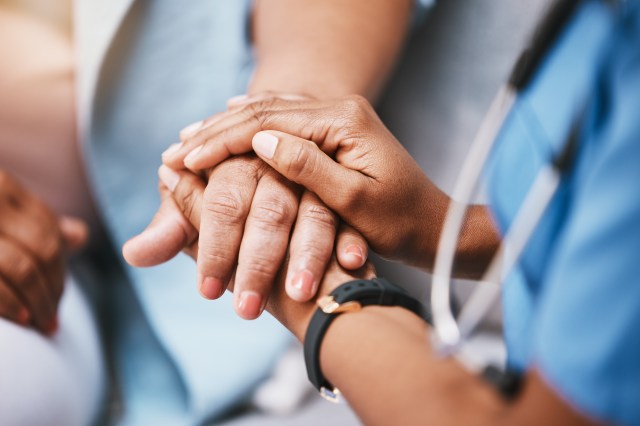Course Summary
Empathy is fundamental to a strong and effective clinician-patient relationship. It is functionally embodied in good communication skills, and it is key to a clinician’s competence. Empathy plays an important part in health planning and clinical decision-making when treating a patient. Its presence leads to improved patient health outcomes. Understanding how empathy works within a clinician-patient relationship begins by defining the word empathy. Thereafter, a clinician can evaluate how it impacts his or her competency as a healthcare provider. This is particularly important with the growth of telemedicine. Scholars are studying the impact telemedicine is having on empathy in the clinician-patient relationship. Telemedicine may create unique barriers to empathy and these barriers may accompany the obstacles already found in a traditional clinical practice. Clinicians should take steps to eliminate obstacles to empathy and incorporate it more effectively into their medical practice.
Course Format
Homestudy
Learning Objectives
- Provide health clinicians with knowledge of the value of empathy in the clinician-patient encounter and how it can improve patient engagement and health outcomes.
Course Syllabus
- Introduction
- Empathy is Key to Quality Healthcare
- Defining Empathy in Clinical Practice
- Distinguishing Empathy from Sympathy and Compassion
- Detached Concern and Clinical Empathy
- The Relationship Between Empathy and Neurobiology
- Measuring and Assessing Clinical Empathy
- Factors that Impact the Presence of Empathy
- Empathy and Gender Differences
- Empathy and Age Differences
- Empathy, Clinician Competence and Patient Outcomes
- Clinician Competence
- Diagnosis and Clinical Outcomes
- Patient Empowerment/Enablement
- Empathy Promotes Efficiency in Healthcare
- Empathy and Telemedicine
- The Definition of Telemedicine
- The Scope of Telemedicine
- Telemedicine and “Digital” Empathy
- Telemedicine and Increased Workload
- Overcoming Challenges to Telemedicine
- General Barriers to Empathy
- Protocol-driven Care
- Tension Between Empathy and Sympathy
- Patient Behaviors
- Time Pressures, Constraints and Burdens of Practice
- Technology
- Empathy, Socioeconomics, Race and Ethnicity
- Removing Barriers to Empathy in Clinical Practice
- Personalize Treatment
- Avoid Becoming Too Emotionally Attached
- Time Management
- Understanding Human Nature
- Confronting Implicit Bias
- Communication and Being a Good Listener
- Summary
Authors
Noah H. Carpenter, MD
Dr. Noah Carpenter is a Thoracic and Peripheral Vascular Surgeon. He completed his Bachelor of Science in chemistry and medical school and training at the University of Manitoba. Dr. Carpenter completed surgical residency and fellowship at the University of Edmonton and Affiliated Hospitals in Edmonton, Alberta, and an additional Adult Cardiovascular and Thoracic Surgery fellowship at the University of Edinburgh, Scotland. He has specialized in microsurgical techniques, vascular endoscopy, laser and laparoscopic surgery in Brandon, Manitoba and Vancouver, British Columbia, Canada and in Colorado, Texas, and California. Dr. Carpenter has an Honorary Doctorate of Law from the University of Calgary, and was appointed a Citizen Ambassador to China, and has served as a member of the Indigenous Physicians Association of Canada, the Canadian College of Health Service Executives, the Science Institute of the Northwest Territories, Canada Science Council, and the International Society of Endovascular Surgeons, among others. He has been an inspiration to youth, motivating them to understand the importance of achieving higher education.
William Cook, PhD
William Cook, Ph.D. is a licensed psychologist who worked for 15 years in private practice in Montana before leaving his practice to work full time as the Director of CE4Less. He earned his doctorate degree from Texas A&M University, and focused much of his psychology practice in the area of child and family counseling, as well as psychological testing. Dr. Cook likes new challenges, foreign traveling to Africa and areas of Europe and the near East, scuba diving, running, music, and spending time with his family.


